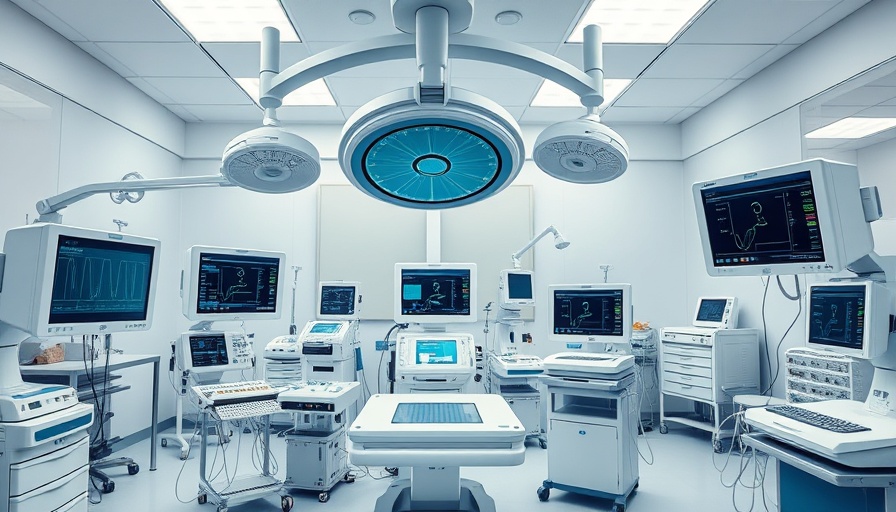
The Rising Concern of AI Medical Device Recalls
Recent findings from a study published in JAMA Health Forum have shed light on an alarming trend regarding AI-enabled medical devices lacking clinical validation being more prone to recalls. The analysis covered 950 AI medical devices authorized by the FDA, revealing that 60 of them were tied to a total of 182 recall events. This indicates a troubling reality where a significant number of devices used in healthcare may not meet safety and efficacy standards, raising serious questions about their reliability.
The Impact of Lack of Clinical Evidence
The data illustrates that devices lacking clinical trials or validation studies had a higher chance of being recalled — a staggering difference that points to systemic issues within the FDA's approval process. The study highlights that while many devices utilize the FDA’s 510(k) pathway, which does not require clinical studies, the absence of such validation could be a predominant factor driving recalls. As Tinglong Dai, the study's lead author, eloquently states, "Unfortunately, it's not required, and so people don't do it.”
The Role of Public and Private Companies in Device Safety
Interestingly, the study revealed a significant correlation between company type and the rate of recalls. Publicly traded companies accounted for about half of the AI-enabled devices but were responsible for over 90% of the recall events noted in the study. This stark contrast suggests that public companies may prioritize rapid market entry over patient safety compared to their private counterparts. Alarmingly, the research showed that up to 97% of AI devices from smaller public companies had no clinical validation.
Understanding the Recall Causes
The recalls predominantly stemmed from diagnostic or measurement errors, functionality delays, or total system failures. It raises important reflections about what measures are being taken to ensure that these devices do not cause harm to patients. With 43% of all recalls occurring within a year of FDA authorization, it appears the FDA's expedited processes are contributing to a troubling cycle of unreliability.
Community Health Implications
The implications of this study are critical in understanding how AI devices fit within community health and wellness conversations. For individuals passionate about maintaining optimal health, ensuring that medical devices are clinically validated is essential. The reliance on devices with insufficient validation can inadvertently lead to uninformed health choices, underlining the necessity for transparency in medical technology.
The Path Forward: Ensuring Safety in Innovation
Looking forward, stakeholders in the health and wellness community must advocate for stricter regulations around the approval of AI medical devices. There is a pressing need for a shift towards a model that emphasizes clinical validation to ensure these technologies are safe and effective. This will not only safeguard patient health but also foster greater trust in medical innovations.
Actionable Steps for Better Health Tech Awareness
Consumers and healthcare professionals alike can engage in proactive measures to ensure that the medical devices they use are safe. This includes researching the clinical validity of devices before use and advocating for evidence-based practices in healthcare settings. Additionally, community health events can serve as platforms to educate the public and promote discussions about the intersection of technology and health.
As we navigate the evolving landscape of health and wellness, staying informed about technological innovations and their implications is critical. By prioritizing safety and efficacy, we can work toward a future where technology enhances our health rather than jeopardizes it.
 Add Element
Add Element  Add Row
Add Row 



Write A Comment